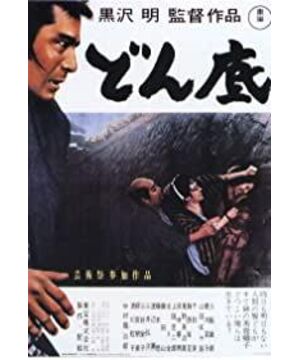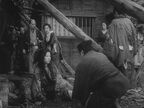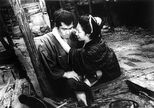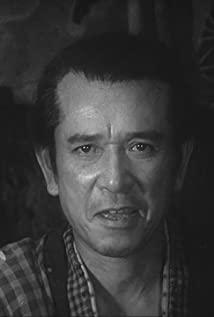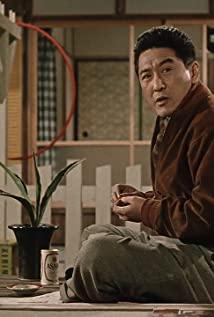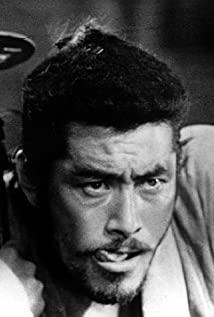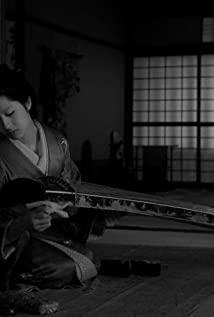Introduction
I met a courier downstairs yesterday who was in deep anxiety. A sender was arguing with him on the other end of the phone. The courier complained to me with tears in his eyes.
The insulted courier, do you think I want to get revenge on him?
The reason for their dispute was that the sender put three express items destined for different regions in the community deposit supermarket. After the courier got the shipment, he communicated with the sender about the delivery information by phone. His mobile phone could not support opening other apps to enter the pickup code during the call, so he verbally recorded the number in the last call with the sender and hung up. Multiple numbers are mixed up after the phone call, which makes it impossible to send.
The courier was on the speakerphone and explained the low-end status of his mobile phone to the sender, "You understand me, I can't make much money a month, and my mobile phone is really not that advanced."
The sender was angry and hated, "Why can my cell phone do it, but your cell phone can't?" "Are you stupid, why can't you take a pen and write?" "You don't understand human words, I say Pickup code over and over again" "You're so bad, just don't do it!"
The courier hurriedly realized that he could use a pen to record the sending location and number on different express items. And he only explained, "You send so many couriers. If you don't come by yourself, put them at the replacement location, what should I do?"
When the courier finished his work and picked up the parcel for me, he said to me with tears in his eyes, "Our industry, originally from the bottom, was bullied by others. The person who sent the parcel said that to me. I can’t retaliate.” I advised him not to take it to heart, and he continued, “I’m really afraid of complaining, it’s hard to find work now, if I can do anything else, who would do it.” I persuaded him again, and he His eyes changed from tears to hatred, "You say, if I want to take revenge on her, I know her home address and her phone number, and I will smash her door! If I go to harass her with a public phone, what can she do to me? !"
I quickly told him that everyone has their own difficulties and persuaded him to be kind. He nodded, but kept saying, "Who wants to live in such a low life?"
When I went upstairs, I kept asking myself, are the people at the bottom going to be bullied? Are the bottom people cursed? Do the people at the bottom have to live at the bottom all the time? Can they not have goodwill and hope?
Perhaps some answers can be found in Akira Kurosawa's films more than 60 years ago.
In a dirty and cold shack like a dungeon, there are more than a dozen low-class people of all kinds, destitute aristocrats, thieves, unemployed actors... They live in high spirits, but I see it in despair. Do you deserve to have hope?
May the sky rain money, and the people at the bottom dance in the ruins and die in the rain
Akira Kurosawa's film "The Bottom", based on Maxim Gorky's screenplay of the same name (Jean Renoir's 1936 film of the same name), tells the stories of those who live on the most fringes and bottom of society .
At his peak, Akira Kurosawa drew inspiration from his favorite Russian literature. It took two weeks to sort out the script and 40 days of rehearsal. The shooting took only one month. For the Black Emperor, this is really a very efficient and high-speed output.
Akira Kurosawa transferred Gorky's Tsarist Russia era to a bottom corner like a garbage dump in Japan's Tokugawa period. The Russians became Japanese, and the oppression of the Tsarist Russian Empire became the feudalism of the Tokugawa era. The times and regions were different, but the human nature showed an amazing consistency. Inside the squatter house is a small and dirty space; outside the squatter house is a vague place where you can go out to drink. However, no one can really get out of the prison-like shanty towns at the bottom.
The story has almost no plot except for the triangular relationship between the thief, the landlady, and the landlady's sister. But it shows the suffering and suffering of the bottom layer in an extremely smooth way. Plus, there's hardly any soundtrack in the film, all you can hear is the characters' cacophony shouts and raging storms, which is their predicament. The loud screams of the characters are like roars of life; the stormy wind makes the shanty towns especially desolate; the heavy rain makes people feel wandering and hopeless. Even death is nothing.
people living at the bottom
"I'm an actor!" Once a popular Kabuki actor, he was addicted to alcohol and ruined his brain. He could no longer remember his lines, and finally hanged himself.
The thief, who had had a relationship with the landlady, really fell in love with the landlord's sister. She hopes to elope with her landlord's sister, but she becomes a murderer and faces exile.
"I'm a lord!" The former aristocrat yelled that he grew up in a famous family of warriors, and he couldn't be believed, so he could only cry.
The blacksmith, his wife was dying, he seemed helpless, but he ate the food alone, letting his wife's life disappear little by little.
"I used to fall in love with a nobleman." She tells the story of her love with a nobleman without cause and effect every day, but she is ridiculed as a prostitute by the lower classes.
A lunatic, after being released from prison, he can only go back to another prison where he lives, holding his head with wood and dancing frantically in the shanty house.
In "Lower", it is the pilgrim traveler who shines brightly as a wise man. In the film in which all the actors were dressed in dark colors, he left the country dressed in white, like a ray of hope in this filthy place. The characters behind him, such as "Bandong Lingchang", made him look like a Buddha and a soul. The old man conveyed the power of faith to the lower class with epiphany-like words. He said to the blacksmith's dying wife, "When you die, you will see the Buddha, and the Buddha will look at you with kindness in his eyes." He said to the thief, "If If you like someone, take her away." The old man was like a wise man on the sidelines, staying outside the shanty house and living in it for a short time. He gave advice to the people at the bottom, but also with warning tips, came without warning, and left quietly. Will the enlightener of this faith bring any changes to the people at the bottom?
The blacksmith's wife said that if I die, I can escape all pain, and I want to live longer, and if there is no pain in that world, then I want to endure this world longer. (Yes, she can live miserably, but not die happily)
The landlady and her husband, sister, and uncle's family. The landlady once had a relationship with the thief, but they were never sincere with each other. Now the landlady has a conspiracy in her heart, hoping to kill her husband with the help of the thief. The thief fell in love with the landlady's sister. After the landlady found out, he tortured his own sister in every possible way. The thief hoped to protect the landlady's sister. The thief seems to be the only slightly heroic character in the film who breaks through the bottom abyss.
But in order to protect the landlord's sister, the thief accidentally killed the landlord's husband. When the landlord's sister learned that the two had intended to join forces, she was disappointed with the thief and believed that she was another victim of the conspiracy. In the end, the thief not only faces jail, but also loses the trust of his lover. The phantom of the hero is shattered.
People at the bottom still drink and gamble day after day. It’s not that they didn’t think about climbing up. The old actors tried hard to remember their lines, but they refused to quit drinking; the former nobles wanted a luxurious life, but They can only cry every day; they persuade each other to drink, cheat each other, and sometimes sing the song of "money rains from the sky", facing the bleak life in a comedy manner.
As Gorky wrote in the original lyrics "Dawn and dusk in the dungeon, the dawn and dusk in the dungeon are dark. I look out the window and want to run, but, I don't run anymore, just live like this!"
The people at the bottom sing in the wind; dance in the dirty corners; revel in the daily cries of misery, "May the sky rain money". They are people who live in tragedy and cannot afford a bit of a tragic plot.
In the last scene of the film, in the squatter house, the people on the ground floor were drinking and having fun. The old actor ran out of the house and hanged himself in the wind and rain. For the suffering people in the grand party, his death was a disgusting disappointment. .
Do people at the bottom need faith and hope? Of course, we cannot easily carry out high moral judgments. "People are in the rivers and lakes, they are forced to helpless" is a rhetoric of the homeless, and it is also the way we try to understand.
The recent article about "Tang Xiaoyan" is very popular. I specially watched her interview in "The Three Walks of Qiang Qiang". In front of the talkative host and cultural director, Xiaoyan has a straightforward and real atmosphere, which is particularly attractive.
Don't go my way
She said that the reason why these bastards wandering around in the rivers and lakes is that they yearn for a better life, but they have no culture and are not reconciled to low-end jobs, so they can only walk on the edge of the law.
She said that many college students were envious of my experience and wanted to spend a while with me, but I refused. Don't envy me, you are literate, you must be content, you must be satisfied with your current life, enjoy life, and enjoy all things.
Interestingly, "unwillingness" is not only the self-driving force of "unwilling" homeless people to mingle in the rivers and lakes, but also an impulsive yearning for the rivers and lakes of modern, knowledgeable and literate young people who have a dull and happy life. The wandering life at the bottom really seems to have a kind of magic, like a swamp beckoning to people of all classes, let's fall into it! When you are really caught in it, even if you have heroic courage, it is difficult to escape it.
As Xiaoyan said, many people in Jianghu lost their lives for this Jianghu. There may be more people, like the people in the Kurosawa film, who enjoy the run-down swamp of the abyss.
There is always suffering in life, but there is always hope.
The original text was published on the public account: Fans Yang Tuo Tuo
Welcome to pay attention! ??What? ━(*`∀´*)ノ亻!??
View more about The Lower Depths reviews


